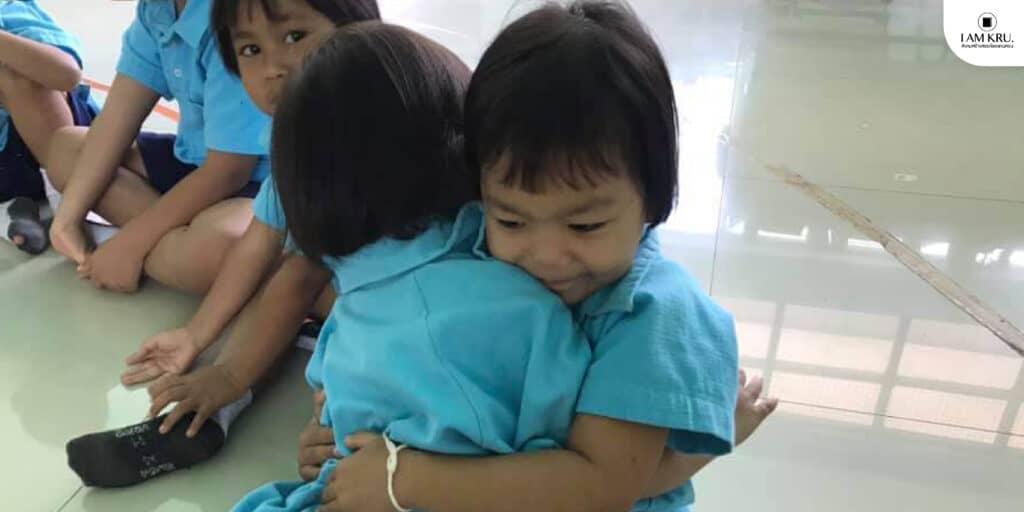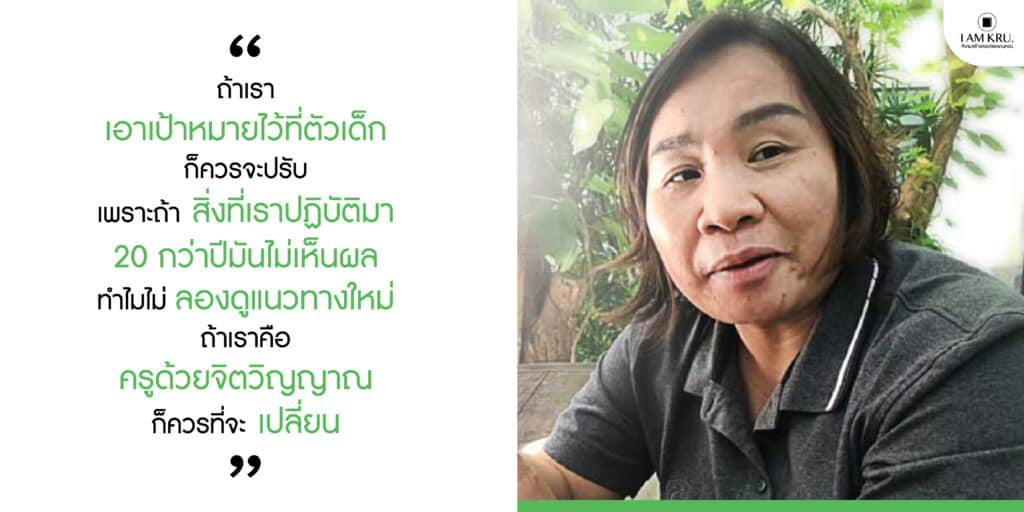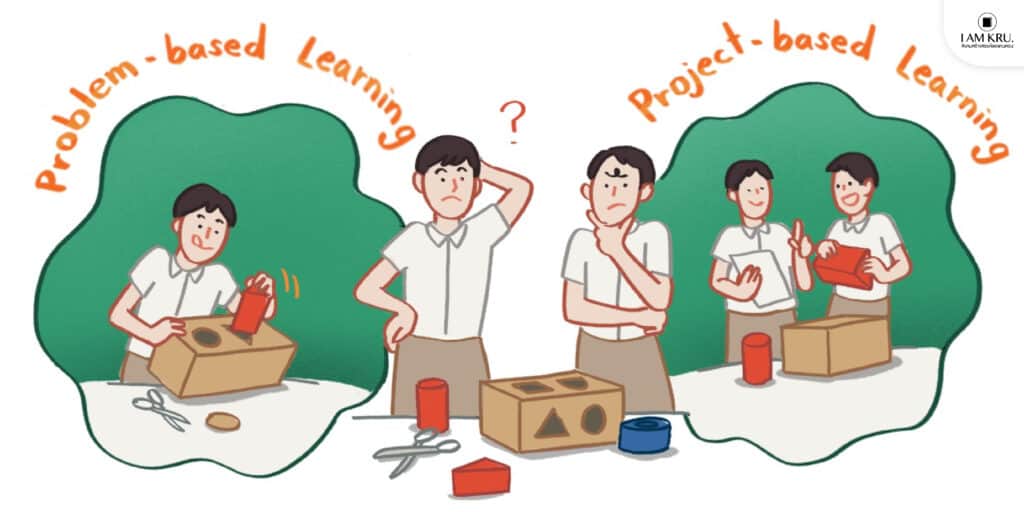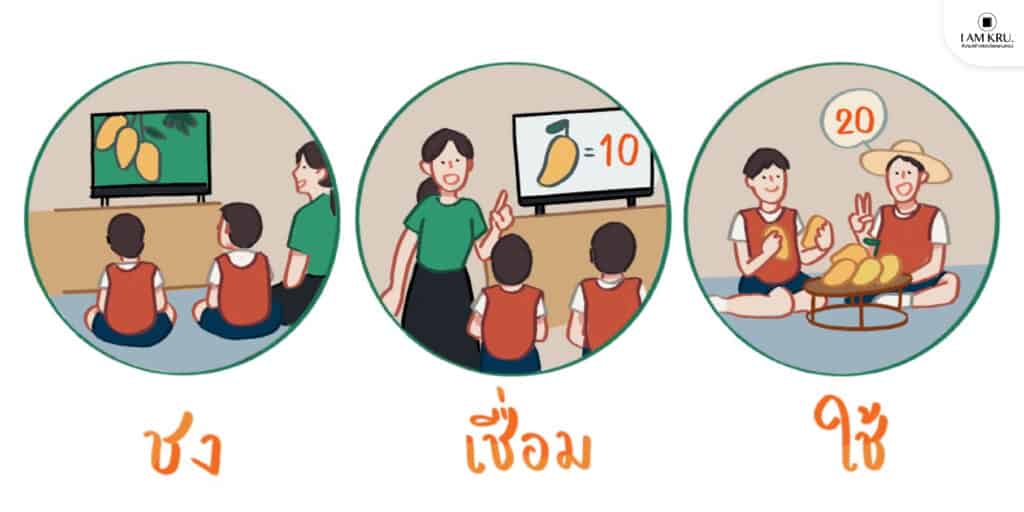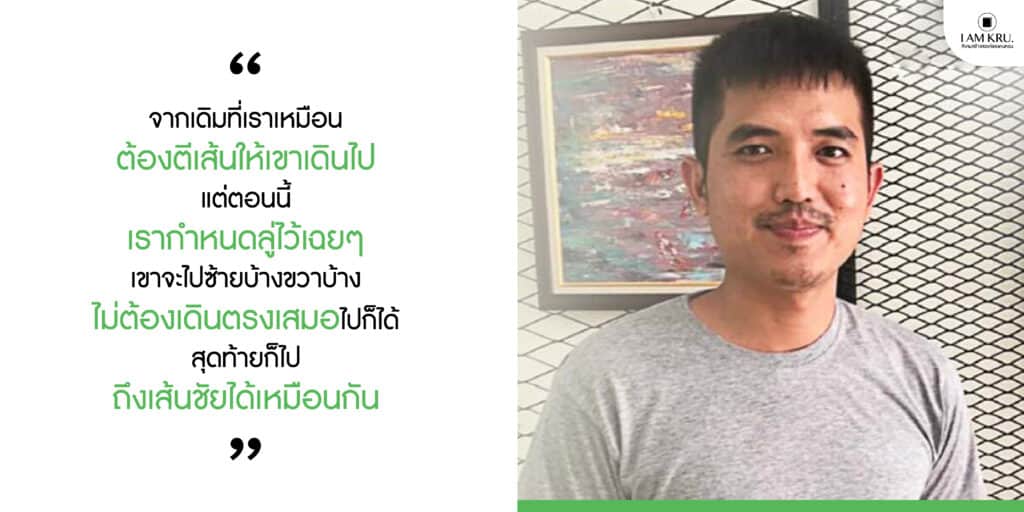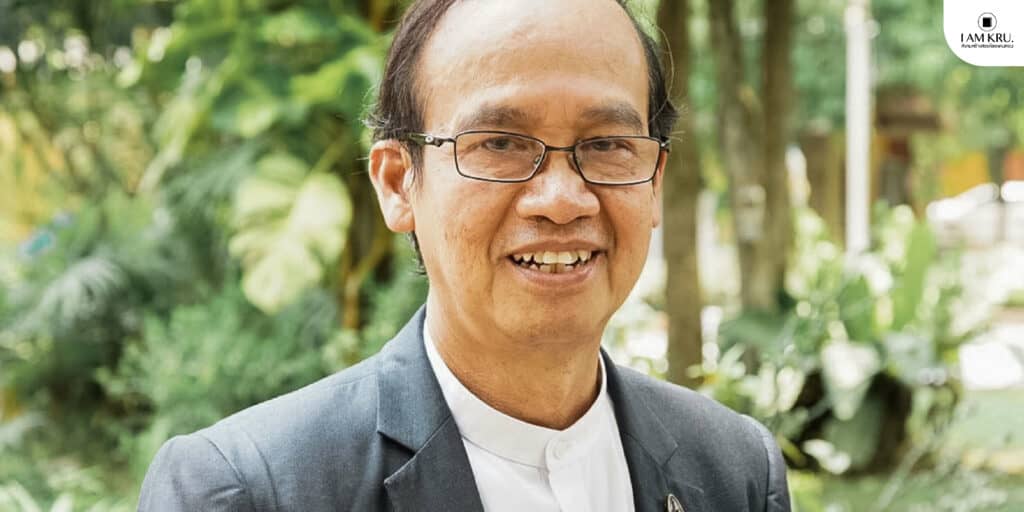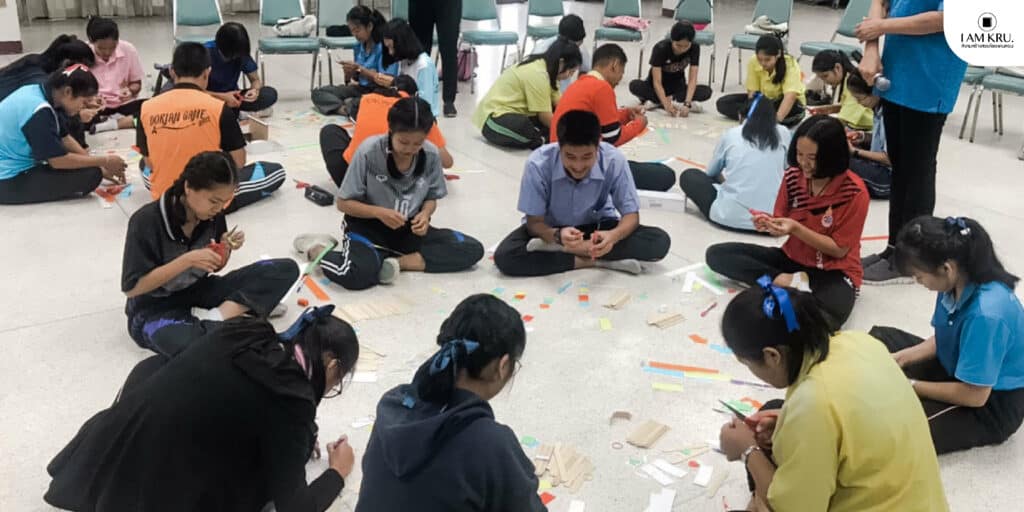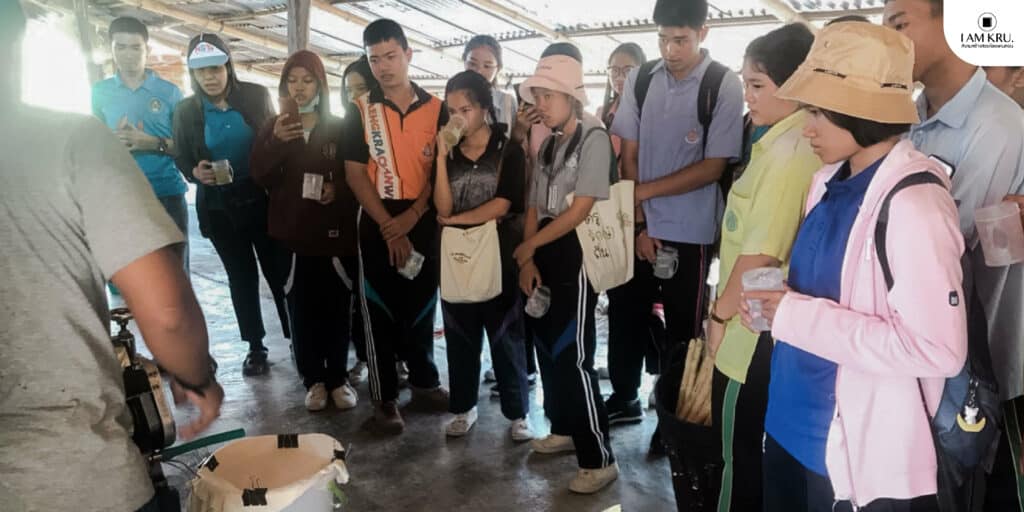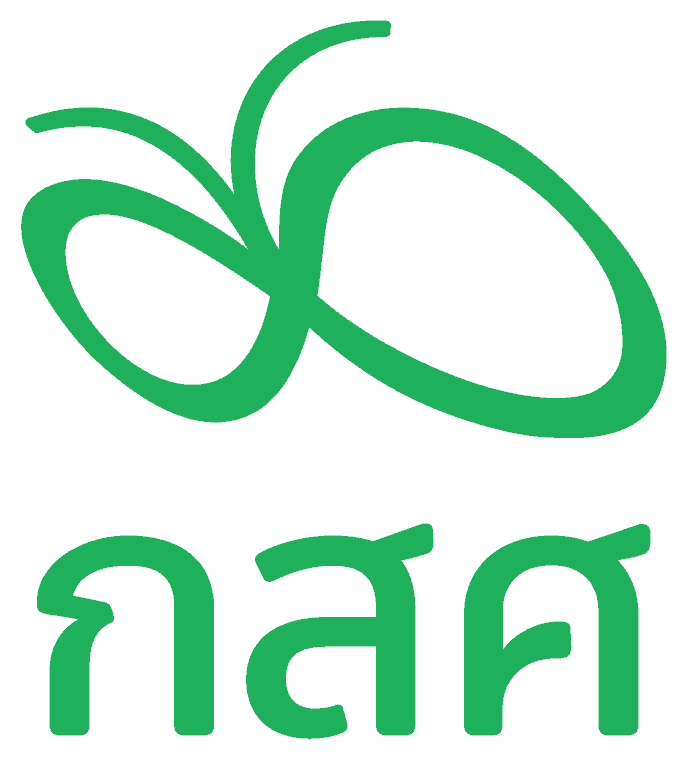“Teachers and schools are not solely responsible for passing on knowledge, but they are also the development center and solvers of community issues,”
said Asst. Prof. Dr. Sombat Yothatip, chancellor of Yala Rajabhat University (YRU).
Southern Thailand is one of the areas that are highly diverse in religion and culture, which creates a mixture of students in each classroom. A teacher, who is also a native, is more suitable for schools in the South than outsiders, because they understand the diversity of the locals. However, pedagogy does not prevail in the border area, and the locals need competency development to solve their community conflicts. This sets up an enormous challenge to the Thai education industry.
The Equitable Education Fund (EEF) viewed that the scarcity of teachers needs to be immediately resolved, and teachers should be provided with additional knowledge. The EEF then came up with a goal to create quality teachers who will uplift education and develop the community in the long run. For the past few years, the EEF has cooperated with different educational institutes in terms of teacher development and accepting teachers of the EEF programs to settle for a long duration. Positive vision and enduring participation make the educational image of the South worth keeping an eye on.

Kru Rak Thin, the goal to add teachers and improve the community
Kru Rak Thin is a project that adds on the number of teachers in each area to meet the demand and employs those who can establish a long-term occupation. Twelfth-grade students who wish to become teachers of their own community will be accommodated with education funds for the whole session in the Faculty of Education. Additionally, student development activities make a qualified teacher who will return to their homeland.
Waeyoree La-teh, school director of Ban Dan school which is one of the destination schools that houses Kru Rak Thin students, viewed that Kru Rak Thin resolves the lack of teachers in class and inconsistent learning, because those teachers will remain their occupation in the area. This, in turn, ensures people and children of the community the continuous and complete education and reduces educational inequality in the long run. Therefore, Kru Rak Thin teachers are greatly welcome to be a part of the school.
The fact Kru Rak Thin allows destination schools and communities to together choose, express their needs and participate in searching, makes certain that they will have teachers whose qualifications meet the local demand. Also, it creates an association between schools and communities besides development and problem-solving.
“Making the local people a teacher of the community lessens teachers moving out of the area. Those teachers can also interact with the community and build trust as a spokesperson in the perspective of both community and schools at the same time.”
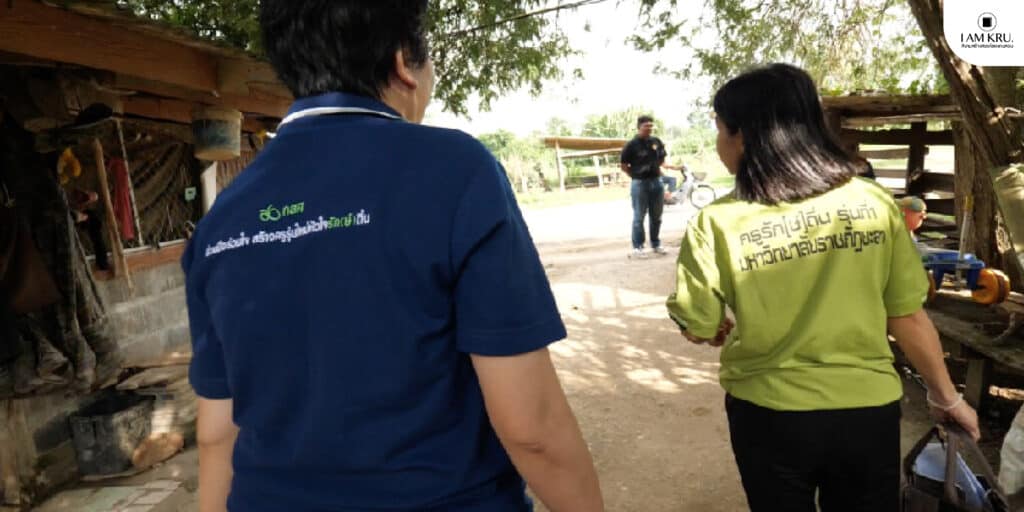
Cooperation with Yala Rajabhat University (YRU)
One of the educational institutes that cooperates with Kru Rak Thin is Yala Rajabhat University (YRU), led by Asst. Prof. Dr. Sombat Yothatip, chancellor. This partnership has initiated their first generation in 2019, and continued the second generation in 2020. Similar to the EEF’s objectives, YRU aims to produce teachers who will help develop the community and to provide education that is suitable to the Southern area. YRU, accordingly, collaborates with the EEF to recruit students for Kru Rak Thin and train them throughout the curriculum.
YRU is assigned to supervise student teachers in the field of early childhood and primary school by coordinating with other schools to recruit and grant twelfth-grade students pedagogical scholarship, design courses and create additional activities for them to join in.
“The best part is YRU has put forward the process for some time. Then it is not difficult to proceed altogether with the EEF, especially when they have the same common ground that this method will solve educational problems in the three Southern border provinces more directly and apparently, because we actually designed the project[Kru Rak Thin] from the fundamentals of the problems.”
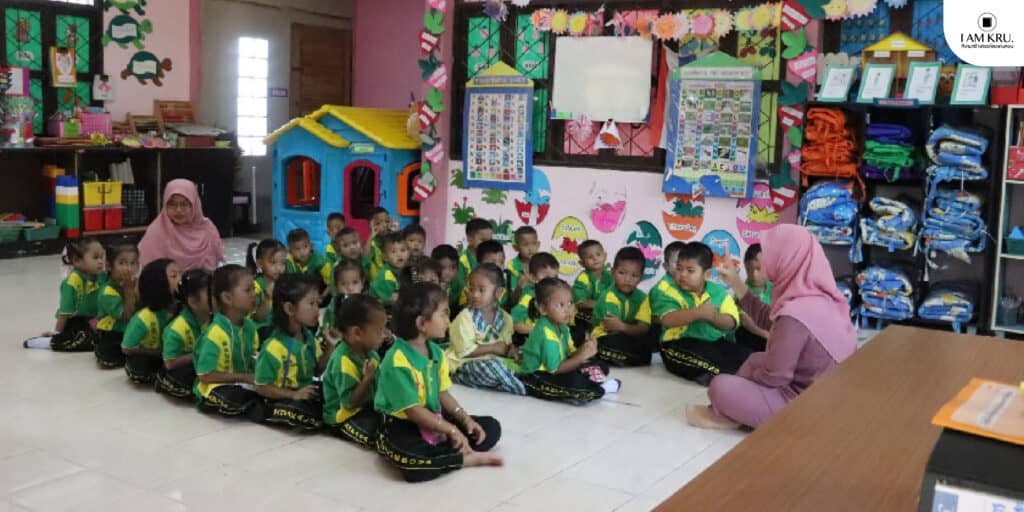
University’s role changes, from waiting to searching
The foremost procedure is to search for diamonds.
The cooperation with Kru Rak Thin alters the admission process of YRU. Taking a visit to neighboring communities in order to look for student teachers through discretion of the Faculty of Education professors and experts is a priority now, where in the past they would wait for students to enroll. The notion is favored by people of the community who desire to witness their children be educated as equitably as those in other areas which makes it ‘possible’ for this important and never-before-seen collaboration.
It takes a considerable effort to visit the area altogether with the EEF, communities and destination schools that will accept those students to conduct student screening, particularly in the Southern border provinces (Pattani, Yala, and Narathiwat), where there are sensitive and complex conditions. The risk is unavoidable from the beginning since some students’ dwellings are located in the red zone. Nevertheless, it became a history that marked the willingness of every sector, including the university, community and schools, to take care of the children and make them the productive human resources who will cause changes in the area.
“I [Sombat] think that, to the university, taking a visit in search of students will bring them those who have a teacher-spirited heart. It’d be easier to further develop them because the community and schools will show different perspectives of students. The information received is then more accurate than an examination or interview that takes a short period of time to complete. At this point, we, as producers, must sacrifice and invest our time with the community and every network to bring about the right teachers and developers.”
Prepare students with extracurricular development
When the searching and selecting process is prepared, students will study the intensive academic course for 4 years straight and be instilled a sense of “developer teacher” by having activities with the community and the destination school that every “soon-to-be teacher” will be employed after graduation.
“The curriculum requires students to communicate and do activities with the community to usually absorb movements. They will be guided by the village headman, director and teachers of the destination school. Gradually, they will notice the problems or in-depth community development work plans that they need to take part in. This method does not only familiarize them with the community, but also demonstrates the local needs. Keeping them close to the community from their freshman year to graduation, I [Sombat] think, will make them come up with an innovation that will improve their local.”
Asst. Prof. Dr. Sombat
In cases of extracurricular development on student teachers, YRU has had the project called ‘Extra Time’ for more than 7 years prior to the cooperation with the Kru Rak Thin, in which Asst. Prof. Dr. Sombat explained about the Extra Time that it is a special course that answers the main question: “how to raise the standard of quality education in the 3 Southern border provinces?”
“We, as an agent that produces teachers, are directly responsible for solving this problem. We discovered one mostly related factor, which is that although our production is qualified, it is not enough or it does not meet the local demand. For that reason, the Extra Time curriculum was developed. We experimented by bringing 30 student teachers in the primary education field to live in the same dormitory, adding extra time to enhance specialized knowledge, creating the spirit of being a teacher, and whole fully developing competency in every aspect.”
With cultural, ethnic and religious diversities of the South and the prolonged South Thailand insurgency, teachers of the three Southern border provinces should be advocated with perspectives and proper means to handle these chronic issues and to make students understand the problems utterly.
The Extra Time is usually available between 7:00 p.m. and 9:00 p.m. on weekdays, while weekends and semester breaks are on occasion. As soon as students complete the entire curriculum, they will have 1,800 extracurricular hours.
“Knowledge concerning territorial contexts and basic Islamic teachings(Tadika) will be added to those extra times. By taking the consistency of students’ background into account, we support Buddhist teachings for Buddhist students. We also have more in-depth training for teaching strategies regarding local contexts than other curriculums with community development courses, and bilingual and multicultural education, because most people of the community largely use the spoken dialect called Bahasa Melayu(Bahasa Jawi). Consequently, a cooperative research was conducted between YRU and Mahidol University(MU) under a specific topic: Educational Management in Primary School of Linguistically Diverse Communities. Students should, most especially, realize that teachers and schools are not solely responsible for passing on knowledge, but they are also the development center and solvers of community issues. That is the heart of Extra Time.”
Since YRU has had this Extra time for a long period of time, they are prepared to cultivate Kru Rak Thin students to comprehend multiculturalism. Even though those students are the locals themselves, profound and precise knowledge is more important. With the location, curriculum and personnel available, in the future we may witness “teachers” who are the products of this intense project and will enhance the strength of schools and their hometown unceasingly.
88
Writer

- เอื้อการย์ โรจนจิรไพศาล (มะแม้ว)
- นักเขียนผู้หลงรักการผจญภัยในเมือง ปรัชญาในชีวิตจริง และการไป Cafe Hopping ทั่วทุกมุมเมือง
